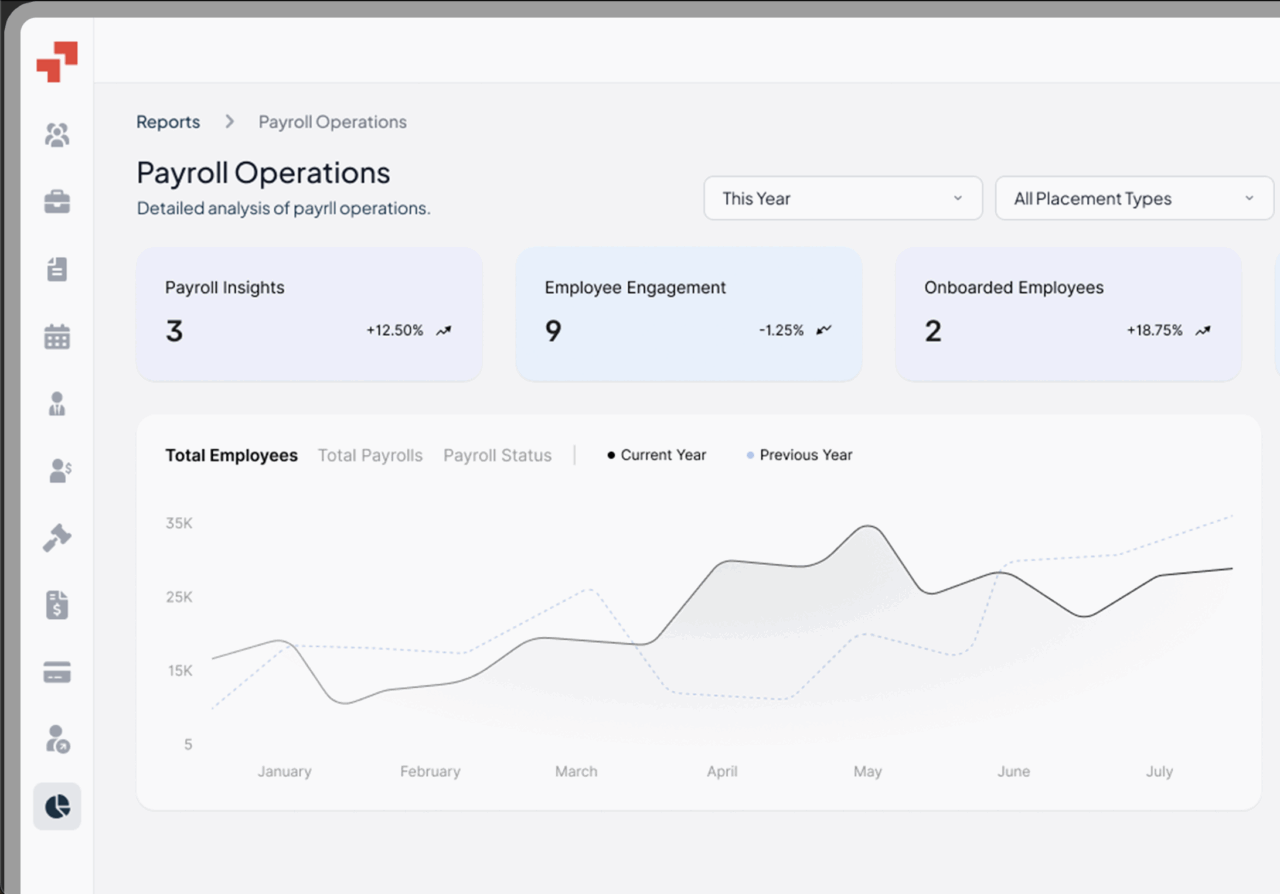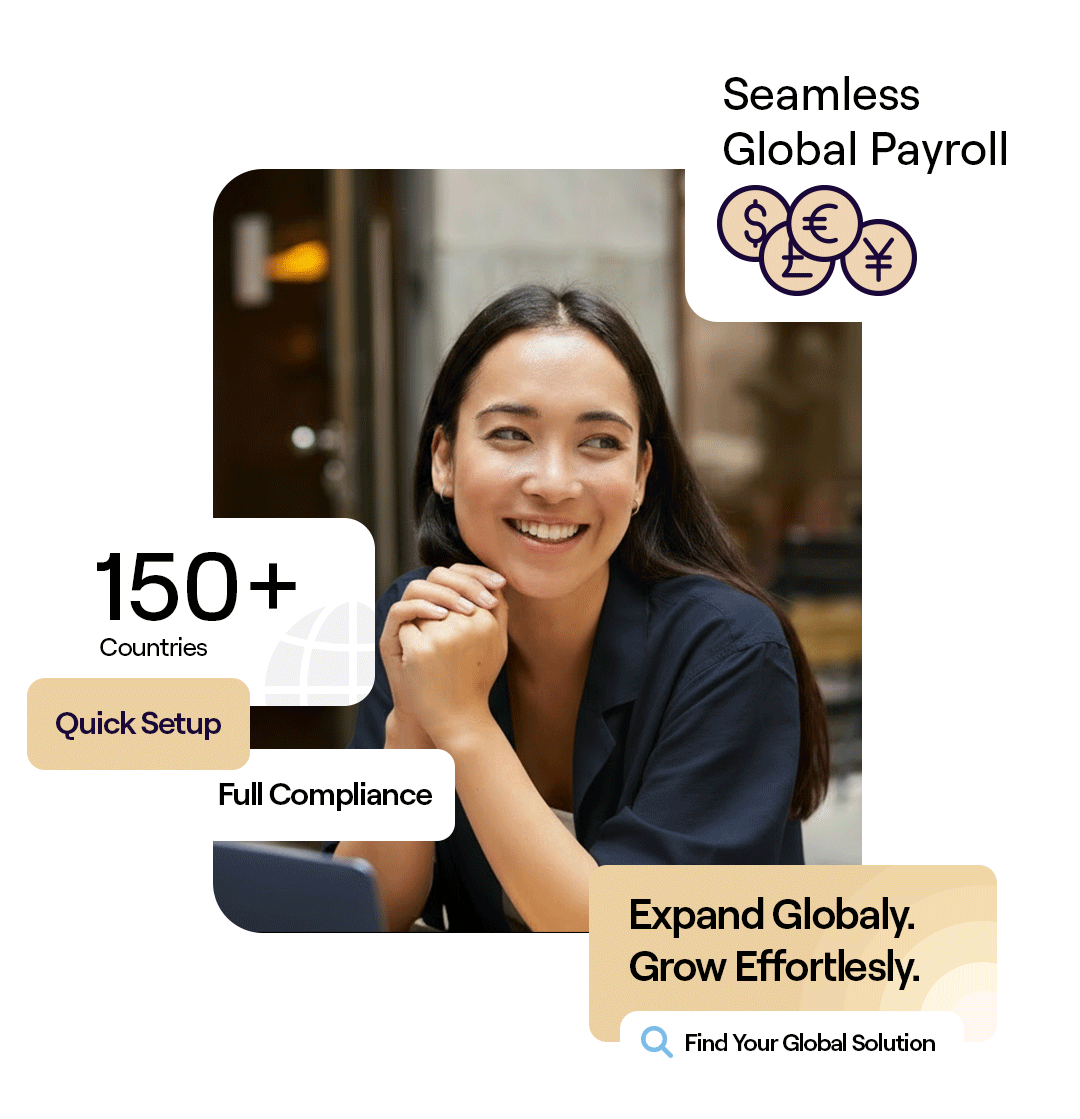Global Workforce GlossaryExpand Globally
Related Terms
Hire Globally
Global PEO
Employer of Record
Market Expansion
Foreign Legal Entity
Expanding globally is more than just entering foreign markets and new markets — it’s about unlocking growth potential and future-proofing your business in a connected world. From startups to multinational corporations, every company faces the challenge of scaling internationally while maintaining efficiency, compliance, and local relevance. As global opportunities rise, leaders must understand how to navigate regulations, cultural nuances, and workforce management complexities. This glossary entry explores what it truly means to expand globally, why it matters, and how to approach it strategically.
Table of Contents
- What is co-employment?
- What are co-employment laws?
- Why is co-employment a risk?
- What are co-employment rules
- Co-employment do’s and don’ts
- How does co-employment work?
- What is the difference between co-employment and joint employment?
- Co-employment vs PEO
- Co-employment vs employee leasing
- Is co-op considered a full-time employee?
- Is it illegal to work for two jobs in the same industry?
- Co-employment examples
- Practical Case Study Example
- PamGro and Co-employment: Your Global Partner
What Does Expand Globally Mean?
To expand globally means for a business to enter and operate in international markets beyond its home country.
This expansion involves setting up operations, selling products or services, or hiring employees across different regions while adapting to local regulations, laws, cultures, and consumer preferences.
Companies typically expand globally to reach new customers, diversify revenue streams, and gain a competitive edge and competitive advantage. Success depends on thorough market research, understanding local compliance rules, and having the right operational partners. Tools like an Employer of Record (EOR) can simplify hiring and compliance across borders, allowing businesses to focus on growth rather than bureaucracy.
How to Expand Business Globally
Expanding a business globally requires a step-by-step approach. Start with detailed market research to identify regions with high demand and favorable regulations. Next, evaluate entry strategies — exporting, franchising, partnerships, or setting up subsidiaries. Legal and tax considerations are crucial at this stage.
Businesses often face challenges such as unfamiliar employment laws, payroll complexities, and compliance risks. Partnering with a global Employer of Record (EOR) like PamGro allows companies to hire local talent without creating a legal entity. EORs handle onboarding, payroll, and legal and regulatory compliance, enabling a faster and risk-free global expansion strategy.
Why Companies Expand Globally
Companies expand globally to access new markets, boost revenue, and reduce dependency on a single region. Expanding internationally also allows them to tap into diverse talent pools and benefit from cost advantages. For tech-driven firms, global operations create 24/7 productivity by leveraging time zones.
Additionally, companies aim to enhance brand recognition to cater to the local audience and gain exposure to innovation ecosystems worldwide. Global presence can also mitigate risks from local economic fluctuations. By expanding globally, organizations future-proof their operations against domestic market saturation and capitalize on global consumer trends.
How to Create Your Global Expansion Strategy
A well-designed global expansion strategy is essential for sustainable growth. It starts with defining clear objectives — whether increasing revenue, sourcing talent, or establishing production centers. Next, businesses should analyze target markets and develop a market entry strategy , considering local competitors, cultural nuances, and regulatory requirements.
Successful strategies also include a localization plan for marketing, customer support, and HR policies. Businesses can leverage EOR services to navigate local employment laws while maintaining centralized control. The key is to balance global consistency with local flexibility. Strategic partners like PamGro help structure compliant, scalable expansion models across markets.
What are the Benefits of Expanding a Business?
Expanding a business internationally provides multiple benefits, including increased market share, diversified revenue streams, and improved brand visibility. Companies gain access to a larger customer base through international operations , global talent, and innovation opportunities.
Moreover, expanding globally strengthens a company’s resilience by spreading risk across economies. It encourages cross-cultural learning and understanding of cultural differences exposes teams to global best practices. Businesses that enter international markets early often develop stronger operational agility and adaptability — both key traits for long-term success.
What are the Three Main Reasons for Expansion?
The three primary reasons companies expand globally are:
- Market diversification: Reducing reliance on one economy.
- Revenue growth: Increasing profits through access to new customers.
- Talent acquisition: Hiring global talent to improve innovation and efficiency.
Beyond these, companies may also seek lower production costs or new partnerships. With rising remote work trends, many organizations now expand virtually using EOR solutions to align their business practices and establish presence without traditional infrastructure. This approach aligns with the modern borderless workforce model.
What are the Factors of Global Expansion?
Successful global expansion depends on several interrelated factors:
- Market potential: Demand and competition levels.
- Regulatory compliance: Labor laws, taxation, and local employment standards.
- Cultural adaptation: Understanding local customs and communication styles.
- Operational readiness: Logistics, staffing, and technology infrastructure.
Companies that neglect any of these factors risk costly setbacks. Conducting detailed market research and leveraging local expertise are essential. Partnering with an EOR provider ensures adherence to local labor laws and smooth onboarding processes. Effective planning and localization determine how well a company performs across borders.
What are the Effects of Global Expansion?
Global expansion impacts companies, employees, and economies in various ways. For businesses, it leads to increased profitability, brand visibility, and innovation potential. However, it also brings new challenges like compliance management, exchange rate risks, and cultural integration.
On a macro level, global expansion drives job creation, enhances global trade, and fosters knowledge exchange. When managed responsibly, expanding globally strengthens both the company and local economies.
What is Globalization in Simple Words?
Globalization is the process through which businesses, technologies, and cultures become interconnected worldwide. It allows goods, services, and information to flow freely across borders.
In simple terms, globalization makes it possible for a startup in India to sell products to Europe or hire a developer from Brazil. This interconnectedness creates both opportunities and responsibilities — companies must respect cultural nuances, comply with regulations, and maintain ethical labor practices while participating in global markets.
Challenges of Global Expansion and International Business
Expanding globally comes with significant challenges. Regulatory differences, taxation laws, and compliance complexities vary from country to country. Misunderstanding local labor laws can result in penalties or reputational damage.
Cultural barriers are another major hurdle. Miscommunication or misaligned expectations with international teams can impact productivity. Managing payroll across multiple currencies adds operational stress.
To overcome these, businesses often rely on partners like PamGro for EOR and global compliance management services. These solutions eliminate legal risks by ensuring adherence to local labor laws with the assistance of local legal experts , employment contracts, and reporting standards. Having an experienced partner makes international expansion not just possible — but sustainable.
What is an Example of Expanding Globally?
A growing SaaS company in the U.S. decides to expand globally by hiring customer success teams in India and marketing specialists in Germany. Instead of setting up entities in each country, it partners with an Employer of Record (EOR) like PamGro to handle compliance, payroll, and local benefits.
Within weeks, the company establishes an international workforce, serving clients in multiple time zones. This expansion improves customer response time, increases global revenue, and strengthens brand recognition. The company achieves global presence — without the traditional cost and complexity of entity setup.
Practical Example / Case Study
Consider a mid-sized logistics startup based in Singapore that aims to serve clients in Europe and Latin America. The company faces challenges like differing labor laws, tax frameworks, and local onboarding requirements. Establishing subsidiaries in each region would take months and cost hundreds of thousands of dollars.
Instead, the startup partners with PamGro’s Employer of Record services to hire operations managers and regional sales teams in Germany, Spain, and Brazil. PamGro manages employment contracts, payroll processing, and benefits administration while ensuring full legal compliance.
Within three months, the company expands into three continents, boosts its revenue by 40%, and reduces setup costs by 70%. This example illustrates how using the right EOR partner simplifies the journey to expand globally while maintaining operational flexibility.
How PamGro Helps You Expand Globally
Expanding globally doesn’t have to be complicated. With PamGro, you can hire, manage, and pay employees in over 150 countries to achieve economies of scale — without establishing a local entity. Our Employer of Record (EOR) solutions handle everything from contracts and compliance to payroll and benefits, so you can focus on business growth.
PamGro’s experts navigate local labor laws, tax regulations, and cultural nuances, ensuring your expansion strategy remains compliant and efficient. Whether you’re hiring remote developers, setting up a new regional team, or testing a new market, we make global growth simple and risk-free.
👉 Discover how PamGro can power your global expansion journey — faster, safer, and smarter.
Hire the Best Talent, Anywhere






